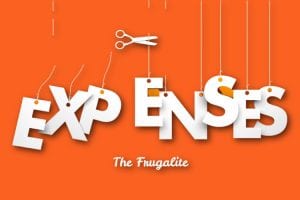(Psst: The FTC wants me to remind you that this website contains affiliate links. That means if you make a purchase from a link you click on, I might receive a small commission. This does not increase the price you’ll pay for that item nor does it decrease the awesomeness of the item. ~ Daisy)
By the author of The Prepper’s Guide to Post-Disaster Communications, and Zombie Choices.
I suppose I’ve long had an intermittent interest in trying to solve the puzzle to learn another language. I’m not proficient in any of that languages I’ve toyed with, really, but I am able to keep my interest raised long enough to learn a few phrases before I move on to something else.
I’ve taken plenty of classroom courses, studying three different languages for a total of 3-6 years (if I’m doing my math right and remembering correctly), too, though, and it’s given me a bit of an insight as to what are the expensive ways to learn a language and what are the expensive ways to learn a language.
If you find yourself contemplating the need to learn another language, here are some of my thoughts on the various costs.
I think that classroom instruction is arguably the most expensive way to learn a language.
Particularly college courses. If that’s the route you’re going to go, you’re going to end up spending several thousand dollars per class. Consider that after you finish Spanish 101, the limit of your vocabulary will be the equivalent of the One Semester of Spanish Spanish Love Song (look it up). You’ll know some stuff, but you likely won’t be at the level that you’ll want to be at.
To get to the level that you want to be at, you’re going to then have to spend several thousand more dollars on other classes. Is it all worth it? Maybe, but I think there are cheaper ways to go about this.
Rosetta Stone-style programs are fairly inexpensive.

To me, Rosetta Stone was the pioneer here. They opened the door, showing people how language acquisition programs are supposed to work. A number of spinoffs quickly surfaced, and at the moment, it appears that Babel is the main forerunner in this department.
You can typically pick up one of these types of programs now for under $100. I’ve only used one of them before, but I did find that it was useful in helping me to grasp a number of concepts and vocabulary terms without actually needing to pay a teacher to do so.
Teach Yourself guides rock.
I’ve always liked these books. You can typically pick them up for around $20. You’ll get a good grasp of some basic vocabulary but a strong grasp on grammar. I don’t think you’ll become proficient with just a Teach Yourself guide, but you will become better.
Library books and audiobooks are always free.
The library is actually where I discovered Teach Yourself guides. There are a lot of other language books at your local library that will help you to improve your vocabulary and grammar, too, though, and they won’t cost you a dime.
The audiobooks are a nice touch as well. For example, I just got back from a long car ride halfway across the country. I had a French audiobook with me. I’ve long attempted to learn French and have never been able to get much of it to be able to stick other than the useful French phrase “Je me rends!”
I quickly discovered that I had the wrong type of audiobook with me – I had borrowed one that required you to read a guidebook as you listened, a difficult task when driving – but there are language learning audiobooks out there that are audio only – no guidebook required.
Had that been the type of audiobook I had picked up from my library, I could have actually ended up learning something over the course of that multi-day drive other than that I don’t think I will ever like Florida Georgia Line’s music.
Visiting the country is price variable.
While immersing yourself in the language is a fantastic way to learn a lot on the fly, it by no means is an inexpensive endeavor. You’ll have to have your travel expenses covered, your lodging, and your food. I don’t recommend doing this solo unless you’re going somewhere where English is common as a secondary language or you’re already semi-proficient with the language, thanks to a lot of self-study.
You’ll end up getting lost otherwise.
That being said, this can be an excellent means of learning a lot for about the same cost as a single semester of a college course. There are a lot of variables here with the cost (Is it an expensive country? How far away are you traveling? How long are you staying? Are you going to work while you’re there?), but I would say that hour for hour you will learn more in-country than you will in class.
DuoLingo will teach you some basics for free.
Duo Lingo has both a free version and a paid version. You can access it as a website online or as an app on your phone or tablet. This virtual course teaches you the basics of grammar, vocabulary, and spelling of dozens of different languages. It’s a good way to get a handle on the language before going more in-depth with something more costly. Daisy says this is how she learned Spanish and learned how to read Greek well enough to understand the street signs.
Private tutors have different costs.
I did this with German on two separate occasions. The first occasion was semi-private tutoring/semi-classroom teaching, and cost me $100 for about eight weeks of instruction. The second time was free and one-on-one for a few months with a German professor.
I learned a lot of vocab this way, it was an easy way to learn, and it was inexpensive as well. If this is the route you’re looking at, I would recommend scouring the bulletin boards online or at college campuses. Maybe you can work out an arrangement with a friend in exchange for chopping firewood or something like that.
Making friends with a native speaker is a fantastic way to learn.
You may already know somebody that is a native speaker. If that’s the case, ask them to teach you a bit of their language. This is somewhat related to having a private tutor, but I think there’s a distinction here. You can learn a lot over a year just by hanging out with your buddies and asking them how to say certain things in their language and then using that in conversation when you are with them.
It’s free, and you may not become proficient this way, but you’ll definitely get a handle on the pronunciation and accent of different words.
These are just a few of my musings on this.
I wouldn’t really consider myself a polyglot or anything like that. The use it or lose it principle very much applies here, and since I haven’t used a lot of what I’ve learned over the years, a lot of it has been forgotten. But I do remember the costs involved with some of these different language endeavors.
And perhaps this will prove to be of some benefit to you. But what are your thoughts? Do you speak any other languages? How did you learn them? What do you think were the cheapest ways to learn? Tell us in the comments below.
About Aden
Aden Tate is a regular contributor to TheOrganicPrepper.com and TheFrugalite.com. Aden runs a micro-farm where he raises dairy goats, a pig, honeybees, meat chickens, laying chickens, tomatoes, mushrooms, and greens. Aden has four published books, The Faithful Prepper, An Arm and a Leg, The Prepper’s Guide to Post-Disaster Communications, and Zombie Choices. You can find his podcast The Last American on Preppers’ Broadcasting Network.














4 thoughts on “The Cheapest Ways I Know to Learn Another Language”
I have studied many foreign languages, most of them on my own. Taught dozens of classes in high-school French and college-level French and Spanish. I think classes are worthless: expensive, stressful, and not geared to the individual’s needs. I learned Spanish by taking my brother’s third year high school textbook by Xenia Sacks da Silva. I studied every page, memorized every vocabulary list and dialogue, and did every exercise. After five chapters, I’d go back to the very beginning and do it again. When I was 19, I had a Peruvian boyfriend who had a friend who was a priest. He set up for me to stay at a convent on Patriotismo in Mexico City for a week, las madres de San Jose de Lyons. Then paid a modest amount to stay in an apartment with three (biological) sisters of a nun, who lived in Morelia. At the beginning it was extremely stressful. The Spanish around me was very fast and incomprehensible. About all I could say was Que bonito! The dialogsI had memorized were very helpful, just take one word out, maybe restaurante, and replace it with museo, to give the impression that I could otherwise say Me hubiera gustado más pedir enchiladas suizas en el restaurante. I was lucky that I was pretty, young, and blonde, and many people approached me to talk to me and invite me to First Holy Communions or swimming at a balneario every time I went out. And that’s the best way to learn.
Personally I don’t like Rosetta Stone. Every language uses identical materials not adapted to the culture. And no grammatical instruction. I’m not crazy about Duolingo. A lot of single words and phrases you click on to choose your answer. Good but not enough. I’m very enthusiastic about Living Language. I’ve gotten the full set of boxes with books and DVDs for several languages. I’d prefer culturally specific materials with color photos and videos (most university texts), but Living Language is very good. Has vocab flash cards and stressful “games” at their website.
It takes a long time to become fluent in a foreign language. You need to commit to studying it several times a week and you need to commit to a lot of rote memorization. I enjoy doing that and seeing measurable progress. I studied Italian on my own before going to Europe by myself (again, solo travel is the best way to make friends, practice the language, and enjoy the culture). I tried out a short sentence with the owner of a pensione in Venezia, Ti piace il calcio? (Do you like soccer?) I pronounced it wrong, accenting the i. He corrected me and I never made that mistake again. I talked to the owner of a hotel in Rothenburg ob der Taube in German. She said their heating was broken and they’d been turning people away since she couldn’t speak English and couldn’t explain about the heat. I understood and had an enormous room to myself, with featherbeds, something I’d never seen before, for a greatly reduced price.
You have to engrain the grammatical structures in your brain: every time you construct a sentence, it creates a new neural circuit in your brain, and every time you use it, the circuit is strengthened and using it eventually becomes totally automatic. But vocab isn’t enough.
Cia,
I enjoyed reading what you had to say about your language acquisition and travels. Interesting!
I have a degree in Romance languages with emphasis in French Education. I studied Spanish for two years in college; as well as a year of Latin. I also had a year of German in high school and three years of French in high school. I’ve done a bit of traveling and think that is the funnest way to study a language. Having someone to practice with is great! I appreciate this article as I am seriously considering going on and getting my M.A. and maybe a PH. D. in French. I will also need a reading knowledge in a second language. I will probably choose Spanish. I have a ways to go though as it has been awhile since I have used any language other than English with regularity. I enjoy using duolingo for various languages. I have also used Mango. Years ago I used Rosetta Stone. Lately, I have borrowed books from the library. I will also borrow movies and audio. I hope to find other people that are interested in practicing the languages I am studying. I used to attend French club and practice as often as possible with people around me. I am going to study on my own for a bit before going back to school.
I took Spanish classes for way too long before I figured out that there are better ways to learn a language.
Don’t laugh. My best progress has been made watching Netflix. At first, I’d spend an hour watching 10 minutes of a program. Now, two years later, I can understand an hour-long program in only two hours.
I watch with the Spanish subtitles until they say something I don’t understand. Rewind and see the English subtitles. Look at the Spanish subtitles again so I see the sentence structure that was used.
When I’m in the flow of watching and understanding as I go, I repeat out loud what was just said.
There’s an online program that has videos with English and Spanish subtitles displayed at the same time. Much more efficient, but the videos are not very interesting. I prefer to struggle along rewinding Netflix because the programs hold my interest.
Mango is free on my library web site. I try to spend 30 minutes on lessons every day. I also like the language learning audiobooks that are available online or discs that I can check out at the library.
I’ve tried two different tutors on Preply. Each tutor sets their own price, so the cost varies a lot. The idea really appealed to me, but in practice it has only been so-so. I am not a fan of Preply’s subscription model.
SpanishDict is my favorite of the apps I’ve found so far. They send a vocabulary word every day. And they have a conjugation drill, which I am using to improve my biggest weakness in speaking.
I like Hola Spanish on Youtube, although I have not signed up for their monthly program. Lots of helpful tips, phrases and vocabulary. Totally in Spanish yet easily understood, and fun to watch.
In my area there are several Meet-Up groups for Spanish language practice. As with all meetings, some are more productive than others. Overall, it is worthwhile and enjoyable.
A Kindle book I have sums up my journey pretty well. How To Become Fluent In Spanish: Not for Beginners, NOT QUICK AND EASY, but Really Effective.